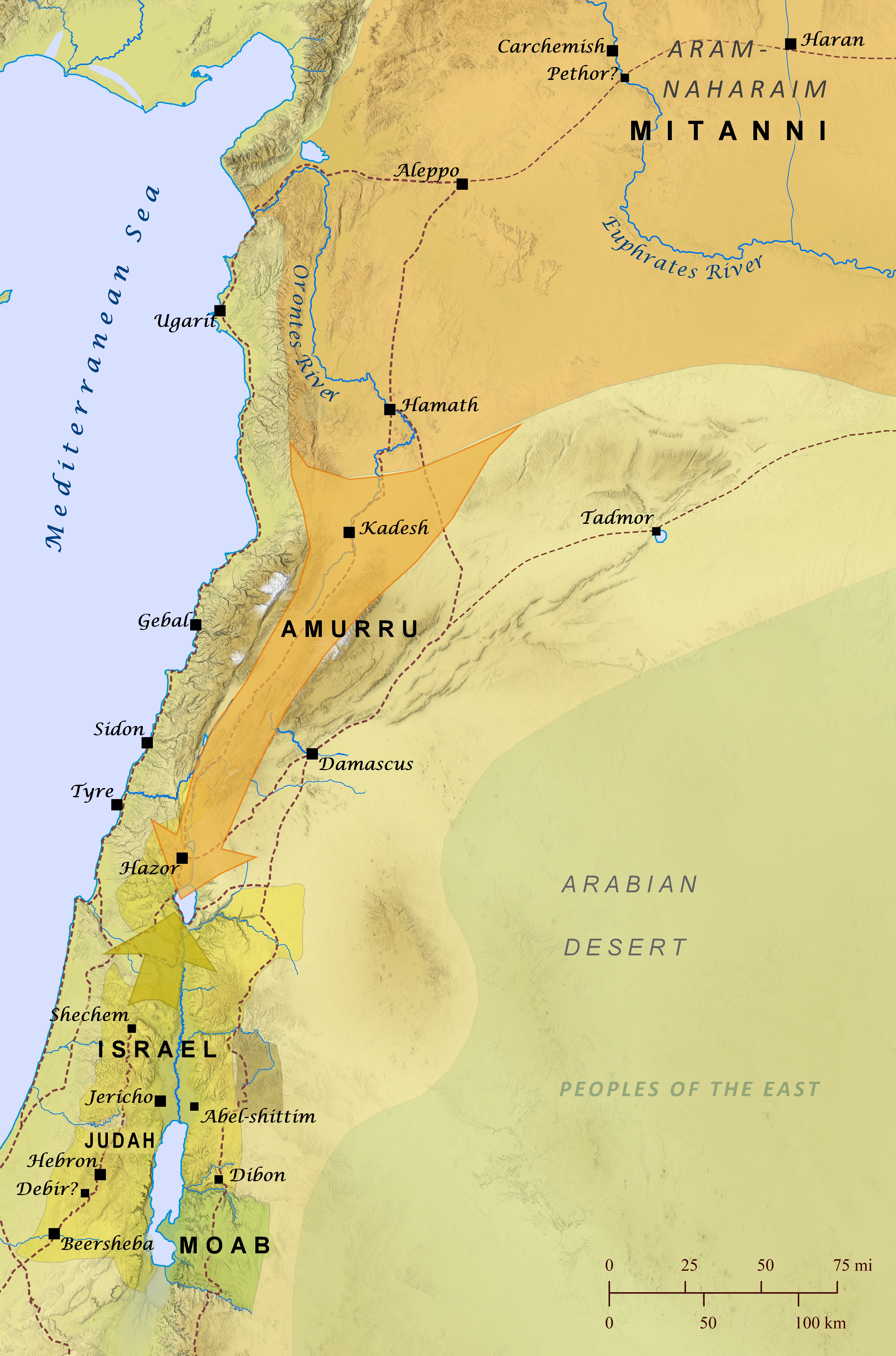Readers’ Version
Literal Version
1:11 Otniel captures Debir
11 From there they fought against Kiriath-Sepher (now known as Debir). 12 Caleb had said, “Whoever attacks Kiriath-Sepher and captures it can marry my daughter Aksah.” 13 Otniel (son of Caleb’s younger brother Kenaz) captured it so Caleb gave his daughter Aksah to him to become his wife. 14 After the wedding, she urged Otniel to ask her father for a field. When she got off her donkey, Caleb asked her, “What can I do for you?” 15 “Give me a blessing,” she requested. “Although you’ve given me land in the southern wilderness, give me some springs of water as well.” So Caleb gave her the upper springs and the lower springs.
12 And_ Kālēⱱ/(Caleb) _he/it_said the_one_who he_will_attack DOM Qiryat Sepher and_captures_it and_give to_him/it DOM ˊAkşāh daughter_of_my to/for_(a)_woman.
13 And_captured_it ˊĀtənīʼēl the_son_of Qənaz the_brother_of Kālēⱱ the_small(sg) from_him/it and_gave to_him/it DOM ˊAkşāh daughter_of_his to/for_(a)_woman.
14 And_he/it_was in/on/at/with_came_she and_urged_him to_ask from father_of_her the_field and_dismounted from_under the_donkey and_he/it_said to/for_her/it Kālēⱱ what for_you.
15 And_she/it_said to_him/it come_now to/for_me a_blessing if/because the_land_of the_Negeⱱ given_me and_you(ms)_will_give to_me springs_of water and_gave to/for_her/it Kālēⱱ DOM springs_of upper and_DOM springs_of lower.

